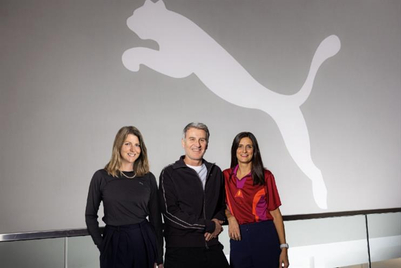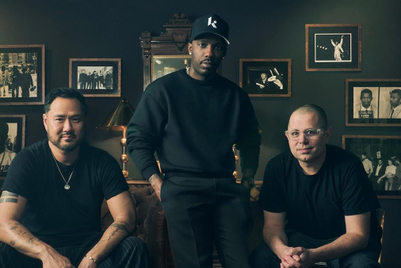
DDB Singapore has formed a new partnership with Temasek Polytechnic (TP) to launch a joint Behavioural Intelligence Group (BIG). Together, their research aims to help marketers bridge the gap between consumers' intentions and ultimate actions.
The study of behavioural science investigates how and why people make decisions and do things. Together, BIG will develop a systems-based scientific approach to examine audiences' abilities, motivations, and contextual influences on their actions. Using a proprietary framework, they plan to jointly create a new industry standard by which marketing success can be judged.
DDB's Singapore CEO Jeff Cheong and its global CEO Marty O'Halloran were both present at the formal signing of the partnership with Temasek Polytechnic’s Principal and CEO Peter Lam.
“With BIG, our goal is to create work that not only touches people’s hearts and open their minds, but also drives behavioural impact," said Cheong. "Backed by behavioural science, BIG increases the chances of success as we use the combined power of creativity and science to move action beyond emotions.”
Temasek Polytechnic has been running the Centre for Applied Behavioural Sciences (CABS) since 2016, which provides customised training i behavioural sciences for clients from the public and private sectors including government, SMEs and multinationals. It also has completed more than 40 research and consultancy projects.
“DDB is a leader in innovative marketing and recognise the immense potential of applying behavioural science to this domain," said CABS head Tan Wah Pheow. "Through BIG, we hope to change the conventional way in which businesses think by complementing the creative magic of marketing with an empirical and scientific approach of behavioural science.”
TEMASEK POLYTECHNIC AND DDB GROUP SINGAPORE LAUNCH
THE BEHAVIOURAL INTELLIGENCE GROUP (BIG)
Singapore, 28 March 2023 – Temasek Polytechnic (TP) and marketing agency DDB Group Singapore are proud to announce their partnership in creating The Behavioural Intelligence Group (BIG). The collaboration aims to narrow the gap between intention and action, by applying behavioural science to marketing.
2 As the late Bill Bernbach, founder of DDB said, “data can turn to dust or magic depending on the creative talent that rubs against it.” This strategic partnership between DDB and TP aims to create impactful work that is more “effectively magic”.
3
4 “With the launch of BIG, we are excited to take marketing to the next level by merging scientific rigor with creative ideas. Through this partnership between DDB and TP, we aim to add value to the marketing landscape by shifting from just creating public awareness through marketing and advertising campaigns to nudging behavioural changes among consumers,” said Peter Lam, Principal and CEO of Temasek Polytechnic.
5 Temasek Polytechnic, through the Centre for Applied Behavioural Sciences (CABS), is the first polytechnic in Singapore to offer training and consultancy in behavioural sciences. Since its inception in 2016, CABS has completed over 40 research and consultancy projects. It continues to provide customised training in behavioural sciences for a wide range of clients, including government agencies, small- and medium enterprises, and multi-national corporations. Through these projects, CABS provide organisations with evidence-based solutions to real-world problems.
6 The BIG partnership was formalised with a signing of a collaborative agreement between Temasek Polytechnic’s Principal and CEO Peter Lam and DDB Group Singapore’s CEO Jeff Cheong on 27 March 2023, at DDB Asia’s headquarters in Singapore.
7 “Behavioural science is gaining traction because many organisations are beginning to appreciate the value of applying it to various aspects of their work. DDB is a leader in innovative marketing and recognise the immense potential of applying behavioural science to this domain. Through BIG, we hope to change the conventional way in which businesses think by complementing the creative magic of marketing with an empirical and scientific approach of behavioural science,” said Dr Tan Wah Pheow, Head of Temasek Polytechnic’s Centre for Applied Behavioural Sciences (CABS).
8 The BIG process is built around a systems-based scientific approach that examines the audience’s abilities, motivations, and contextual influences on actions – why and how people make decisions and do things. This proprietary framework is set to become the gold standard for achieving marketing goals and evaluating success in the advertising industry.
10 BIG’s ultimate goal is to encourage more marketers to use the BIG Framework, which incorporates behavioural science into marketing, and make it a standard way of evaluating success in the industry.


.jpg&h=334&w=500&q=100&v=20250320&c=1)

.jpg&h=334&w=500&q=100&v=20250320&c=1)
.jpg&h=334&w=500&q=100&v=20250320&c=1)

.jpeg&h=334&w=500&q=100&v=20250320&c=1)


.jpg&h=334&w=500&q=100&v=20250320&c=1)



+Effie+HK+00.JPG&h=268&w=401&q=100&v=20250320&c=1)
.jpg&h=268&w=401&q=100&v=20250320&c=1)
.jpg&h=268&w=401&q=100&v=20250320&c=1)
.jpg&h=268&w=401&q=100&v=20250320&c=1)

